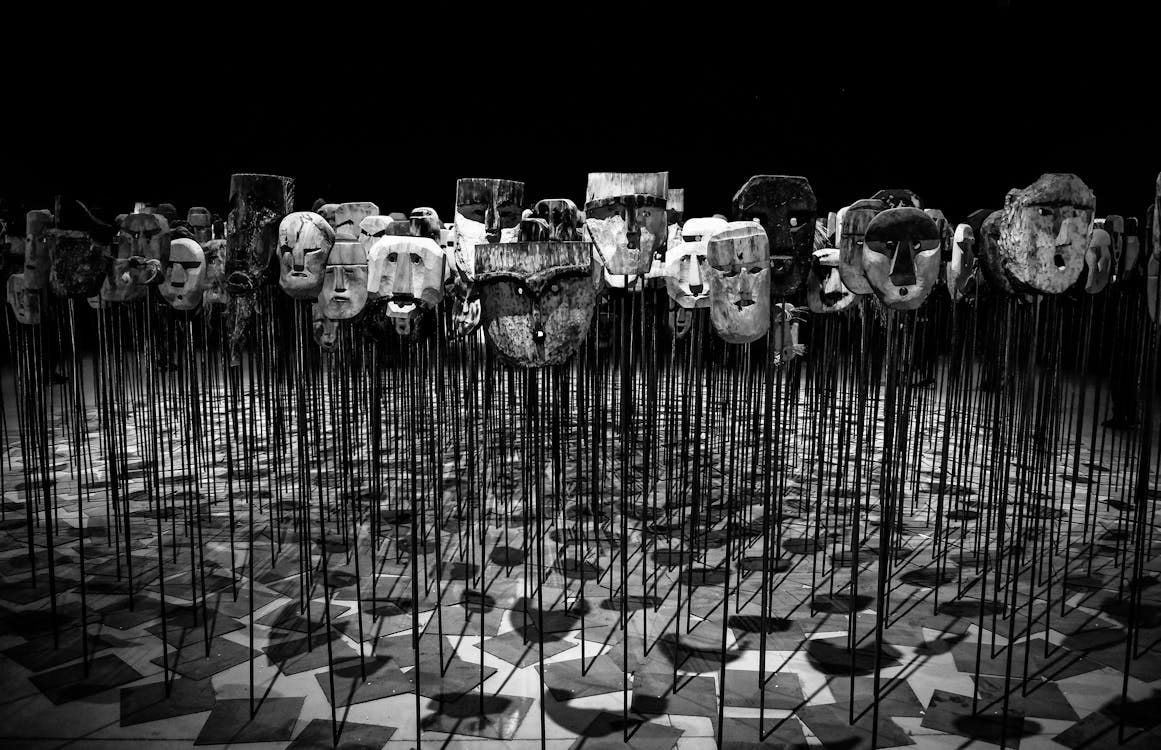We are shaped by the opinions of others but that doesn't mean we are defined by them.
In this one:
Appearances
Equity
Reputation
How are these related? Let’s find out.
STORY
Dress to impress
We say first impressions matter.
We also say we shouldn't care what people think.
Paradox?
Maybe, maybe not. I guess it depends.
My daughter sometimes plays a game called “Dress To Impress”. It’s a fashion role play game where you dress up your avatar with a limited set of customizable items to match different themes in each time-bound round.
Once dressed, each avatar walks the runway and the other players score them based on their impressions. The winner of the round is the player with the most votes.
In a sense, the game mirrors life. And life is a fully subjective experience.
In life, we ‘score’ others (knowingly or unknowingly) based on what we deem important. And everyone plays the game differently, based on their own standards and perspective.
“We don’t see things as they are, we see them as we are.” —Anaïs Nin
The judgments we make are shaped by our personal experiences, values, and biases. Perception is not only personal but also powerful in shaping how we interact.
Humanity is always operating on shifting rules and benchmarks. Ones we invent ourselves and adjust over time.
So just how much should we ‘care’ about these unwritten rules?
Who exactly do we need to impress? Because you can’t please everybody. And you probably shouldn’t try.
The opening paradox resurfaces.
The world we live in is a game. Within it, there are many smaller games. As all games go, there are rules. Some explicit, others implied.
“Life isn't about finding yourself, it's about creating yourself.” —George B. Shaw
The best first impression is the authentic one. The one that is a true expression of who you are. Because authenticity doesn’t need memorizing. It’s easy to replicate, because it is natural.
Substance over form.
The best lasting impression is the same. Not an act, not an appearance. A truth.
In a world chasing appearances, depth is the true unfair advantage.
EXPLAINER
Social capital pt. 4: Your own private equity
When people talk about private equity, they’re usually talking about investment funds, ownership, and financial returns. But there's another kind of private equity. It’s the one you build in yourself.
In thinking about social capital, it’s easy and common for us to place a lot of focus on who we know and much less on how we are known.
But the integrity and value of your social capital depend on both.
What are you known for?
If 10 or 20 people who know you “well” were asked the same set of questions about you, how different would their answers be?
If you think they would differ wildly, it should give you pause.
Early on in life, we inherit a lot of our sense of “what matters” from our surroundings. We inherit markers of status, success, ‘likability’. And unless we consciously question them, we can end up living to impress according to scripts that aren't even ours.
Arthur Schopenhauer wrote:
“We forfeit three-fourths of ourselves in order to be like other people.”
It’s easy to get caught up in appearances, chasing outward markers of success or validation. But appearances are slippery. The world’s tastes and judgments change fast. Substance endures.
Your name is the game
Real substance, like real value, takes time, consistency, and the patience to build without immediate applause.
You are always investing in your personal equity–the unseen value of your character, your work, your name.
The question is: are you investing intentionally, or by accident?
Epictetus said:
“First say to yourself what you would be; and then do what you have to do.”
Your equity is the value you build in your character, your competence, your contribution. It’s the inner compound interest of your life. It is your integrity, your track record, your quiet consistency over time.
When we live for perception, we become ‘public companies’, at the mercy of the crowd. Chasing short-term applause. Adjusting ourselves based on sentiment.
But when we live for value, we ‘stay private’ longer. We build depth, skill, and character that compound over time.
You can impress today and regress tomorrow. Or you can build equity privately, quietly, intentionally, and on your own terms.
The world will always notice. But first, you have to build something worth noticing. Real equity endures.
NOTES
Who are you when you’re not in the room?
Your reputation always precedes you.
Before you arrive, your name is said. And once it’s spoken, images of you appear in their minds, even those that don’t yet know you, based on what they hear.
And just as your reputation precedes you, it also lingers behind after you're gone.
Who do you think you are?
Who do they think you are?
Does it matter? We know it does. So maybe then, to what extent?
One of Robert Greene’s Laws of Power is to “Guard your reputation with your life.” Listen to him explain it from one angle in this short story about Chinese general, Chuko Liang.
How much control do you have over what people think of you?
Is it worth trying to change what you can't ever really know for sure?
How often do people tell you the truth about what they think of you if it's hard to even be corrected?
Hot take: Care to the extent that it matters, guided by the place/ position they hold within your network (the concentric circles).
Always keep in mind the game you’re playing. Understand the rules but remember that opinions are just that: opinions. And facts are just that: facts.
Who you are when you’re not in the room depends on who you are when you’re not in the room. If it’s the same person, you have nothing to worry about.
Reputation is fragile, because it is subjective. Even if you are who you say you are, in the end, it's up to others to make their interpretation of you. Will you spend time explaining or will you spend it building? Choose your hard.
“It takes 20 years to build a reputation and five minutes to ruin it. If you think about that, you'll do things differently.” –Warren Buffet
All that glitters…
To be a person of high value isn't just about what you have to offer, it’s also about how that value is perceived by those around you. Results may vary. People decide for themselves what’s valuable, and often that’s out of your control.
The key is to question what others take as given. If you don't, you risk becoming a passive participant in your own story. The danger is realizing too late that you’ve let external opinions shape who you are.
Don’t just chase what’s shiny. Build something solid and let the rest follow.
Have the best week possible.
AG
If something here lingered in your mind, press ❤️. Then pass it on like a note folded in half and slid across the table.






"The world will always notice. But first, you have to build something worth noticing". I would add, "...worth noticing by the 'right' people."
A few weeks ago, you wrote, "Among high performers, opposites don’t attract." Mission-driven high performers are usually driven in a very specific direction and use every waking moment learning from people who can get them there.
The goal isn't to be liked by everyone but to like who you are and attract others who like themselves just as much. That's how innovation thrives because you're not staying the same to keep people around, but transforming into who you need to be to execute the vision and respecting when others do the same.
Fantastic piece, Alistair! Really enjoyed this series on Social Capital. I've re-read it twice! Keep 'em coming.